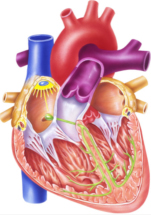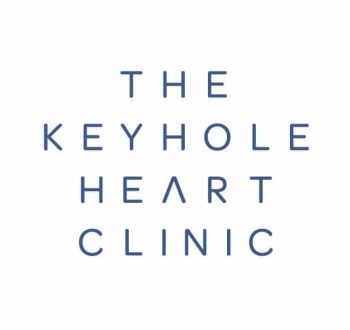Aortic Valve
Why would I need an Aortic Valve Replacement?
Aortic stenosis or aortic regurgitation can be something you’re born with but can also be something you develop in adulthood.
There are a few issues that affect the aortic valve and may require an Aortic Valve Replacement. For example, Senile Aortic Calcification (calcium deposits that build up as you age), Bicuspid Aortic Valve (a problem at birth when the aortic valve has 2 flaps instead of 3), and many other diseases, such as Marfan Syndrome, Ehlers-Danlos Syndrome, Rheumatic Fever, Lupus, Giant Cell Arteritis and Endocarditis.
The symptoms of Aortic Valve Replacement (such as chest pain, shortness of breath, fainting and dizziness) can get worse over time, which can be very uncomfortable for the patient. But more to the point, there are no medicines available to fully treat aortic valve problems, meaning if left untreated by an Aortic Valve Replacement, the patient may experience serious complications, such as heart failure or death. Severe aortic stenosis has a particularly poor outlook without surgery.
How is aortic valve surgery London performed?
In traditional heart surgery, a long incision is made across the chest, the breastbone is separated to allow access to the heart, and the heart is stopped and replaced by a bypass machine for the duration of surgery. The faulty valve is repaired or replaced (either by mechanical, human or animal tissue), the heart is restarted and the opening in the chest is closed. However, while completely effective and a good method of treatment, the traditional Aortic Valve Repair procedure takes 6-12 weeks of recovery time and can be painful. This is why The Keyhole London Heart Clinic would always recommend taking a keyhole approach to heart surgery in any patient who qualifies for this treatment.
Keyhole surgery for Aortic Valve Replacement London
There are many benefits to a keyhole surgery for Aortic Valve Replacement over traditional approaches.
During keyhole surgery for Aortic Valve Replacement, a small incision is created on the chest, which is much more cosmetically preferable.
Additionally, there is less pain and less bleeding, due to the smaller incision and the fact that the breastbone remains intact throughout.
Here are some of the benefits of a keyhole surgery for Aortic Valve Replacement London:
- Less recovery time necessary – you can get back to your daily life in a week, rather than a few months
- Less bleeding – the incision is smaller, meaning less bleeding
- Less chance of infection – as the bone is not broken, there’s little chance of bone infection
- Smaller, less noticeable scarring (and in some cases none at all) –scarring is more aesthetically pleasing and easier to conceal
Before we undertake any aortic valve repair procedure or Aortic Valve Replacement London at The Keyhole Heart Clinic, we take into consideration all aspects of the patient’s life – what their lifestyle entails, how their symptoms are, the status of their health, and what they want to achieve from the surgery. This will allow us to decide whether a traditional method of surgery, or a keyhole approach, would work best. From here, our team of experts can get to work to create a treatment plan tailored to you.
TAVI
TAVI aortic valve repair procedure London is a good option for patients who are classified as too ‘high risk’ for standard valve replacement surgery. TAVI (or, Transcatheter Aortic Valve Implantation) is when a replacement valve is inserted into the aortic valve’s place without removing the damaged valve. It is minimally invasive and only needs a small amount of downtime for recovery. We choose the best surgical option for each patient individually, so if you are unsure about which surgery is best for you, your condition and lifestyle, it’s best to speak to us so we can assess you.
If you have any questions about keyhole surgery for Aortic Valve Replacement London, we would love to answer them. Please feel free to get in touch here, and our dedicated team of experts will get back to you as soon as possible!

